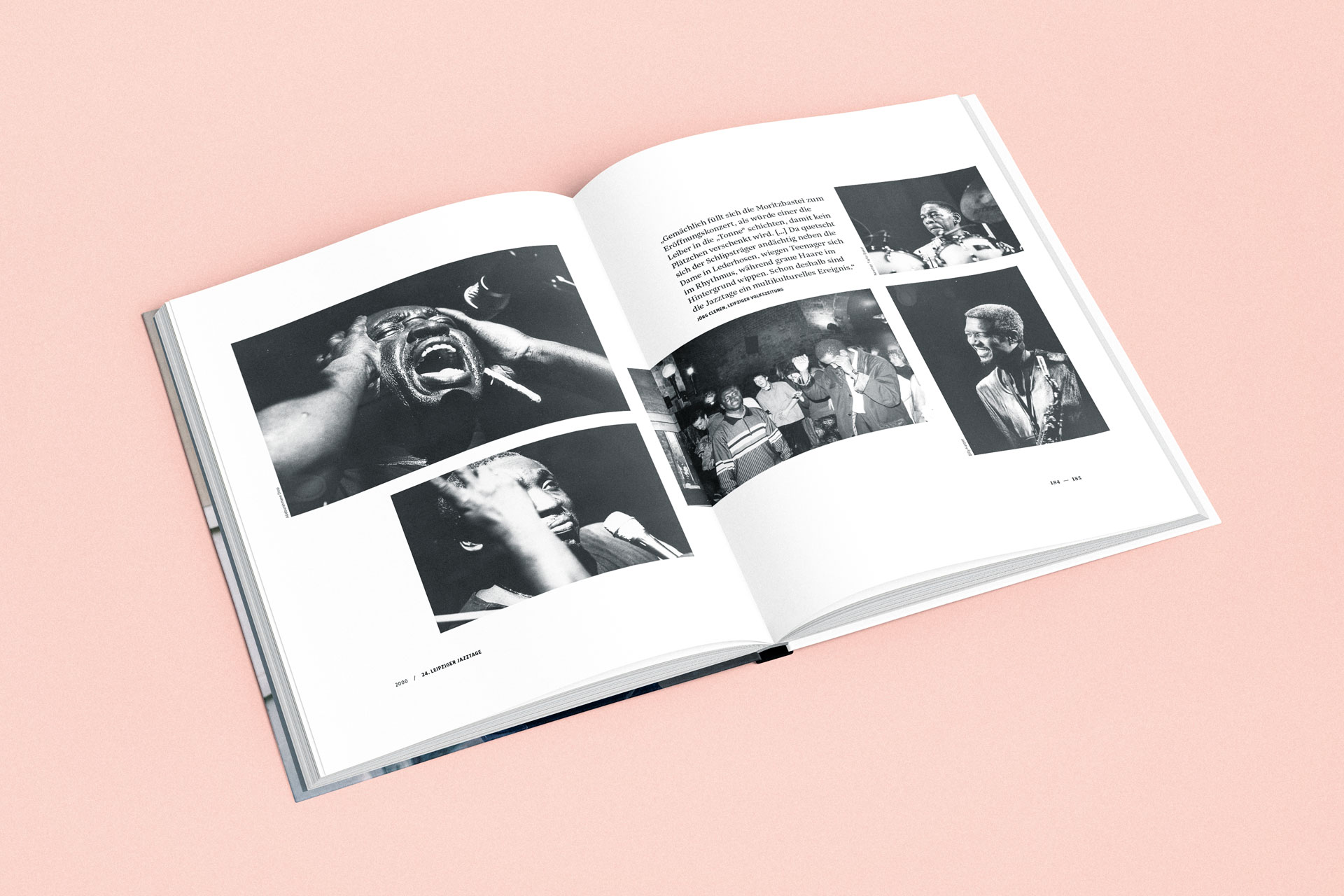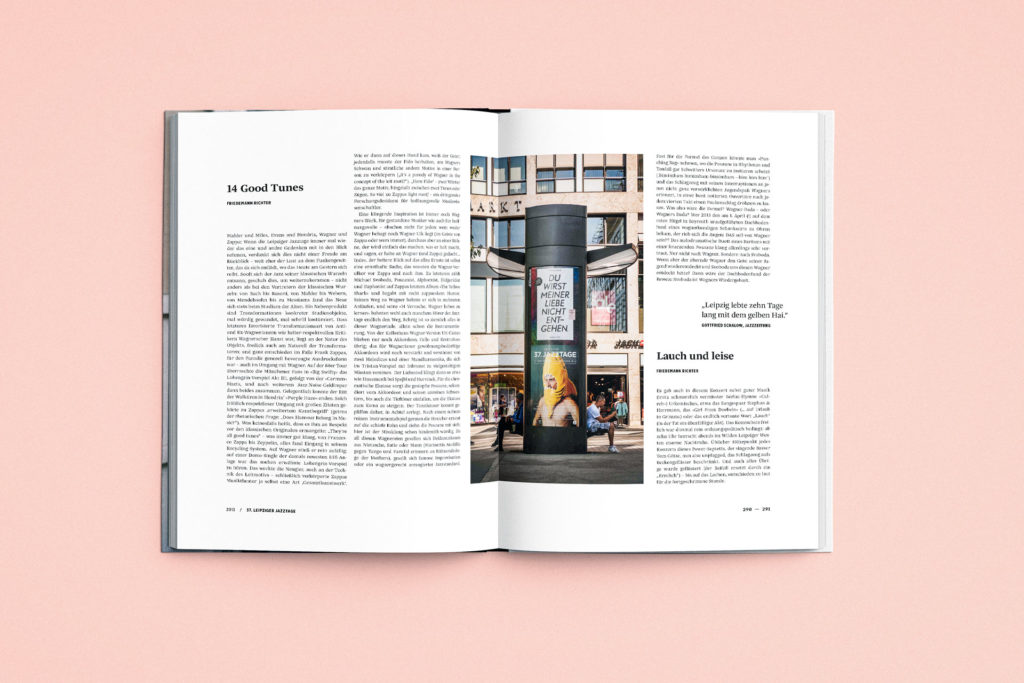Book
Flamingos and other birds of paradise - 40 years of Leipziger Jazztage
With text contributions by Bert Noglik, Heinz-Jürgen Lindner, Wolf Kampmann, Ulrich Steinmetzger, Peter Korfmacher, Andreas Kolb, Detlef A. Ott, Robert Mießner, Ketil Bjørnstad, Rolf Kühn, Joachim Kühn, Baby Sommer, Nils Wogram, Wolfram Dix, Erika Stucky ... and photographs by Matthias Hildebrand, Arne Reimer, Susann Jehnichen, Andreas Liebich and others

Heiner Müller sits at his desk, reading: "I stand between men unknown to me in an old elevator with metal rods rattling during the ascent." Metal rods do rattle a bit, they hold together the huge circus tent where Müller's desk stands. Circus tent? But further: the text read becomes more and more music, German passages, then English, spoken in several voices, walls of guitars rise, saxophone and trombone howl, drums and bass reinforce the rhythm, piano and synthesizer the melodies. Two thousand people sit in the tent of the Circus Busch, it is 1988 and the 13th Leipzig Jazz Days are saved.
If you ask long-time visitors today, just before the 40th Leipzig Jazz Days, about their memories from the last forty years of the festival, many will wax lyrical about that very September 22, 1988, when Heiner Goebbels' "The Man in the Elevator" was heard in Leipzig. This unique project stands like no other for the colorful history of this festival: After the Jazz Days almost had to be canceled because the actual main venue, the Congress Hall at the Zoo, was closed at short notice, the preparation of the festival also needed the courage and creativity that have characterized jazz on stage for over 100 years. The Leipzig Jazz Days moved to the circus tent, later to the opera house and trendy clubs. Between subculture and high culture, they established Leipzig as one of the most important jazz venues in Germany to this day and make a decisive contribution to the charisma of Leipzig as a city of music.

On the occasion of the 40th Leipzig Jazz Days, the Jazzclub Leipzig, as organizer of the festival, will publish the book "Flamingos and Other Birds of Paradise" on September 29, 2016. On 368 pages, numerous stories about the Leipzig Jazz Days will come to life in it, from personal memories and anecdotes to questions such as: What role(s) did the Leipzig Jazz Days play in the cultural landscape of the city of Leipzig? How was the festival able to continue and reposition itself with the political and economic changes after 1989? And how does the festival stand today? Musicians such as Rolf Kühn, Baby Sommer, Ketil Bjørnstad, Nils Wogram and Erika Stucky as well as those responsible for the Jazzclub, visitors and journalists such as Wolf Kampmann and Peter Korfmacher, who have accompanied the festival for many years, tell their stories from a variety of perspectives. Just like their texts, the numerous photos and illustrations of posters, programs and much more are previously unpublished. Thus, for the first time, a kaleidoscope of the most important jazz festival in the new German states is created, which was already an international meeting place before 1989 and which today reaches a younger audience like hardly any other jazz festival in Germany.

The book also lists all the festival's schedules, bands and individual musicians from 1976 to 2016. In addition, jazz expert Detlef A. Ott provides the first detailed overview of the diverse jazz events in Leipzig from as early as 1920. This also shows that "Flamingos and Other Birds of Paradise" and the Leipzig Jazz Days are not just about a festival or a musical genre, but always also about the special attitude of mind associated with jazz, it is about free spirits and rebelling against existing conventionsbut also about tolerance and dialogues across borders.
Jazz and Leipzig are virtually one.
German Radio Culture
